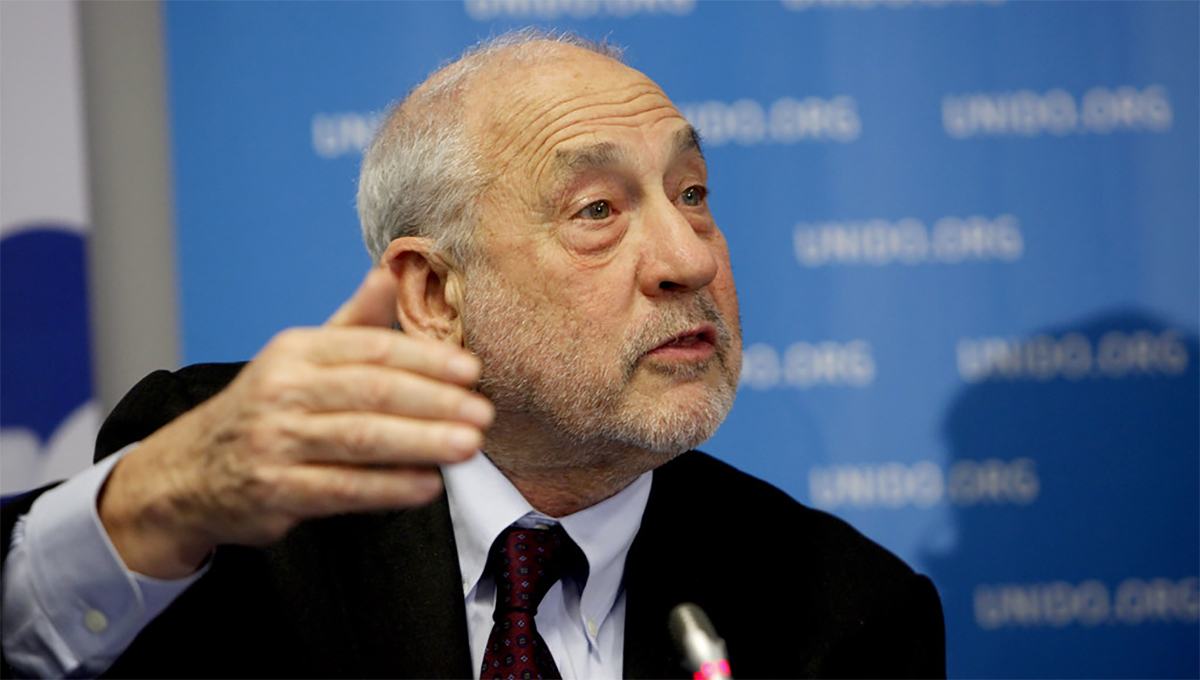
Joseph Stiglitz, winner of the 2001 Nobel Memorial Prize in economics and Columbia University economics professor, participated in a virtual event for Loyola Marymount University students where he argued that our prevailing approach to the U.S. economy is wrong. “Competition is the natural state of a market economy, but any of us looking around at Google, Facebook, industry after industry, recognize there’s not competition, and it’s gotten worse.”
The noontime webinar on Nov. 16, 2022, “Progressive Capitalism, Inequality and Opportunity,” was presented by the LMU Bellarmine College of Liberal Arts, Global Policy Institute, and Economics Department. “One of the reasons it’s gotten worse is because the Chicago economists told the government ‘don’t do anything about competition’ and the result of that is we have less competition,” Stiglitz continued.
Stiglitz, according to his official biography, is also the co-chair of the High-Level Expert Group on the measurement of economic performance and social progress at the Organisation for Economic Co-operation and Development, and chief economist of the Roosevelt Institute. He is a former senior vice president and chief economist of the World Bank and a former member and chairman of the U.S. Council of Economic Advisers. Stiglitz is the author of numerous books, including “People, Power, and Profits,” “Rewriting the Rules of the European Economy,” “Globalization and Its Discontents Revisited,” “The Euro,” and “Rewriting the Rules of the American Economy.”
The moderator Prachi Jain, assistant professor of economics at LMU, raised the question, “The problem isn’t capitalism itself, right? So even in your response, you say it’s neoliberal liberal capitalism so do you mind explaining what is progressive capitalism?”
“So, you know our economy is so complex that no one could run it, you have to have what economists call decentralization, and an important part of decentralization are firms you can think of as a unit within our society that have a particular mandate,” Stiglitz said. “And it’s about production and that’s their responsibility. So, having firms that raise capital from bondholders, shareholders, and then give a return that’s fine, I don’t have any problem with that. But no market economy exists in a vacuum; there must be rules and regulations so it’s guided, where it can do what it should do, what its obligations are, what its freedoms are.”
Stiglitz was critical of economist Milton Friedman and the Chicago school of economics. “There was prosperity, but it wasn’t shared prosperity, but there was a particular view of economics at the time that changed dramatically beginning around the 1970s for about 15-20 years after.”
“Friedman pushed the idea that corporations should only work for their shareholders and that it was a sin if the manager ever took account of the community in which he lived, the environment, other than obeying the minimum that the law set.”
Stiglitz’s approach takes a more shared prosperity view. “I said that any system with a high level of wealth inequality and income inequality, that’s going to translate into political inequality.”
“Just a few years ago, we had another meeting with this particular CEO who I met with, and he said, ‘you know, since the last time we met, I’ve discovered that I have not been paying half my workers a livable wage.’ You know, I’ve been talking, I’ve been hinting at that a very, very long time, and the CEO said, ‘when I discovered that, I raised the wage of all my low-wage workers.’ That was a real example of a CEO taking responsibility and saying, ‘how can I make a better world,’ but that’s true in every job you have … to move toward a more equal society and when we talk about equality in every aspect of how you treat other people.”




